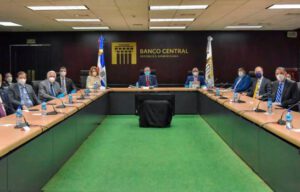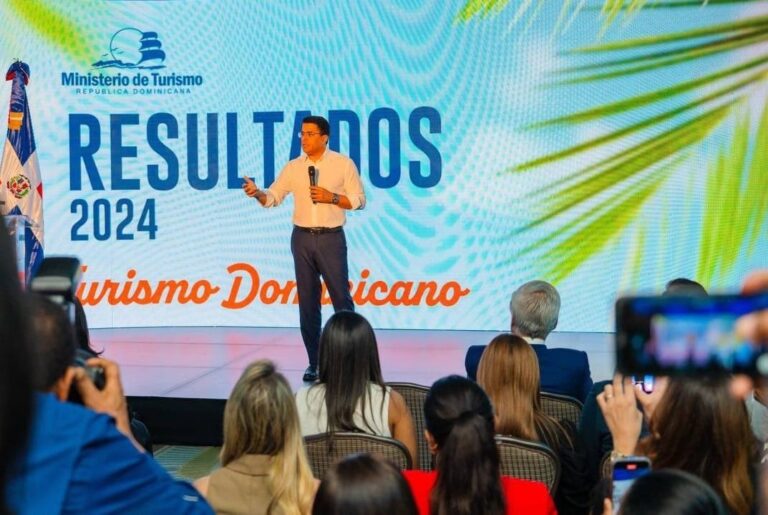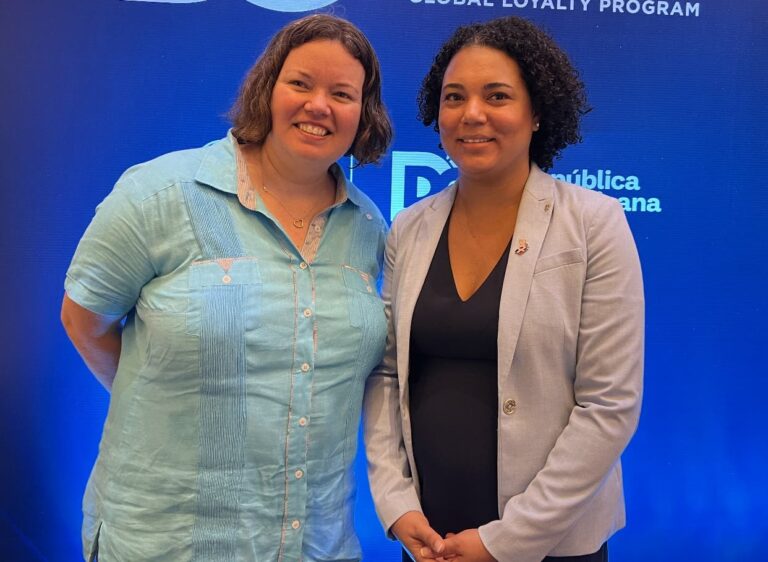El gobernador del Banco Central de la República Dominicana (BCRD), Héctor Valdez Albizu, sostuvo una reunión con los presidentes de las principales instituciones financieras del país, en la que hizo un repaso de la situación actual, en términos del comportamiento del mercado cambiario y del uso de los recursos de financiación puestos a disposición de los sectores productivos dominicanos.
Sobre el comportamiento del mercado cambiario, el gobernador aclaró que actualmente la oferta de divisas ha estado afectada por la suspensión del turismo y un menor dinamismo de las zonas francas y del flujo de la inversión extranjera directa (IED), así como una disminución en las remesas y las exportaciones nacionales por efecto de la pandemia mundial, al igual como ha ocurrido en las economías emergentes.
Indicó que esta situación ha sido exacerbada por grandes empresas locales que han estado adelantado sus compras de divisas para cubrir compromisos futuros, incluso más allá del mes de julio, y en otros casos, una demanda por motivos precautorios asociada a la incertidumbre originada por los efectos del COVID-19 en la economía.
A este respecto, señaló que el Banco Central ha colocado al mercado más de US$2 mil millones de sus reservas internacionales, a los fines de que los sectores productivos, en medio de las limitaciones de las condiciones actuales, puedan cubrir sus compromisos prioritarios y contribuir con las importaciones de medicinas, alimentos y combustibles.
Valdez Albizu fue enfático al señalar que cuenta con reservas internacionales suficientes para apoyar transitoriamente los requerimientos más perentorios de la economía, hasta que los sectores generadores de divisas vayan retomando paulatinamente su dinamismo y mejore el flujo de divisas a la economía.
De hecho, las zonas francas, que estaban operando con un 46 % de la empleomanía del sector, aproximadamente, irán aumentando paulatinamente su producción en la medida que reabran las empresas cerradas por la cuarentena, lo cual se conjugará con la apertura de las operaciones del sector turismo a partir de Julio próximo y la reactivación de la inversión extranjera directa por el reinicio de los proyectos en construcción financiados con estos recursos.
En adición, destacó que existen inversionistas internacionales de portafolios interesados en ampliar sus inversiones en nuestro país, dado el historial de resiliencia y fortaleza de sus fundamentos macroeconómicos, aun en medio de esta pandemia mundial.
Declaró que, si actuamos de manera conjunta para ordenar el mercado cambiario, hay tiempo para que esta economía inicie el proceso de retomar su trayectoria de estabilidad y crecimiento. “La idea es trabajar en una estrategia coordinada entre el Banco Central y los bancos comerciales para priorizar y lograr un acceso equilibrado a las divisas, tanto para cubrir la demanda corriente de las empresas grandes y las MIPYMES, así como de tratar de lograr un mayor acceso del público en general a través de las ventanillas de los bancos, que pueda dar certidumbre a los agentes económicos, para mantener la economía en buen curso y tratar de retomar lo que hemos perdido por la pandemia”, expresó el gobernador a los presidentes de las instituciones financieras.
Asimismo, Valdez Albizu aseguró que “el Banco Central continuará actuando con todas las herramientas necesarias para apoyar la liquidez en moneda extranjera a fin de atender las necesidades de divisas de los sectores productivos”.
El gobernador informó además que el Banco Central ha puesto a disposición del sistema financiero US$400 millones de dólares a través de Repos, a los que se suman US$222 millones de dólares a través del encaje legal, lo que en conjunto suman US$622 millones de dólares.
Recordó también que el Banco Central ha desplegado una amplia estrategia de intervenciones, poniendo a disposición del mercado diversos instrumentos en el mercado a futuro (forwards), facilitando así que los agentes económicos puedan organizar sus compras de divisas presentes y futuras, y a la vez, ofreciendo mecanismos que permiten cubrir sus expectativas de riesgo cambiario típicas de eventos de alta incertidumbre como el que vivimos frente a la propagación del COVID-19, al disminuir la demanda de compras anticipadas de divisas de los usuarios de estos instrumentos. Invitó al sector financiero a ofrecer estos productos a sus clientes para facilitar su planificación de compras de divisas.
Por otro lado, destacó que, de los de RD$120,814 millones de pesos aprobados por la Junta Monetaria al sistema financiero, ya han sido canalizados a la economía unos RD$58,488 millones a través de las distintas facilidades. La activación de estos recursos ha contribuido a una dinamización del crédito privado que crece a una tasa interanual superior al 13% al cierre de abril de 2020.
Concretamente, el gobernador informó que tras la autorización por parte de la honorable Junta Monetaria de la liberalización de RD$50,000.00 millones a través de Repos a 90 días, ya se han colocado de estos RD$40,707 millones, quedando pendientes RD$9,293 millones. Por otra parte, se liberaron del encaje legal RD$30,133 millones, de los que se han colocado RD$17,412 millones como préstamos para los sectores productivos y los hogares, quedando así todavía pendientes unos RD$12,721 millones a través de esta facilidad.
Además de lo anterior, la Junta Monetaria aprobó la liberación de otros RD$20,000 millones que serán colocados a tres años, destinados a sectores productivos de gran importancia estratégica en la República Dominicana, como son el Turismo, Exportación, Construcción y Manufactura.
A ello se suman RD$5,681 millones liberados del encaje legal para las MIPYME, y más RD$15,000 millones para estas mismas empresas canalizados a través de Banco de Reservas. Todos estos financiamientos se están concediendo a tasas de interés no superiores del 8 % y con un tratamiento regulatorio especial por un período de un (1) año: clasificación de riesgo A, con cero por ciento de provisiones y no serán considerados en el cálculo del índice de solvencia.
Valdez Albizu expresó que “todos estos recursos están concebidos como un plan de activación económica que va a obtener buenos resultados”, de forma que “tras esta situación económica sobrevenida por el coronavirus COVID-19, la economía va a crecer en la segunda mitad del año”.
Señaló que las cifras al cierre de abril indican que la expansión del crédito privado en los primeros cuatro meses del año 2020 ha duplicado el crecimiento observado durante el mismo mes del año anterior.
Los representantes del sector financiero mostraron al gobernador Valdez Albizu su satisfacción por el manejo de la política monetaria del BCRD y por el plan que ha posibilitado el acceso a la liquidez y un buen desenvolvimiento.
El gobernador indicó durante la reunión que las estimaciones con respecto al crecimiento económico en el segundo semestre del 2020 son favorables, considerando la magnitud de los efectos de la pandemia, y con bajos niveles de inflación proyectada, con la perspectiva de que el déficit por cuenta corriente sea manejable. “Nuestra situación económica y nuestras expectativas son positivas en comparación a lo que está ocurriendo en los países de América Latina, incluso recibo impresiones muy favorables por parte de los organismos internacionales con respecto a la salud de nuestro sistema financiero”.
A la reunión asistieron Christopher Paniagua, presidente de la Asociación Bancos Comerciales (ABA) y presidente ejecutivo del Banco Popular Dominicano; Luis Molina Achécar, presidente de la Federación Dominicana de Instituciones Financieras y segundo vicepresidente de la ABA; y los directivos de la ABA y ejecutivos bancarios Simón Lizardo, administrador del Banco de Reservas; Steven Puig, presidente ejecutivo del BDH-León; Máximo Vidal, gerente general de Citi República Dominicana; Gonzalo Parral, gerente general de Scotiabank; Fausto Pimentel, presidente del Banco Santa Cruz; Juan Carlos Rodríguez Copello, presidente Banco BDI; María Clara Alviárez, presidente de Banesco; Dennis Simó, presidente ejecutivo Banco Múltiple Caribe; Víctor Méndez, presidente Banco Múltiple Vimenca; así como Andrés Guerrero, contralor de Banreservas.
El gobernador estuvo acompañado de la vicegobernadora, Clarissa de la Rocha de Torres; el gerente, Ervin Novas Bello; el sugerente general, Frank Montaño; el subgerente de Políticas Monetaria, Cambiaria y Financiera, Joel Tejeda; el asesor de la Gobernación, Julio Andújar; el director de Programación Monetaria, Joel González; el director de Regulación y Estabilidad Financiera, Máximo Rodríguez y la directora de Tesorería, Yamileh García.
Fuente: Diario Libre[:en]
The Governor of the Central Bank of the Dominican Republic (BCRD), Héctor Valdez Albizu, held a meeting with the presidents of the main financial institutions in the country, in which he reviewed the current situation, in terms of the behavior of the exchange market and of the use of financing resources made available to the Dominican productive sectors
Regarding the behavior of the foreign exchange market, the Governor clarified that currently the supply of foreign exchange has been affected by the suspension of tourism and a less dynamism of the free zones and the flow of foreign direct investment (FDI), as well as a decrease in remittances and national exports due to the effect of the global pandemic, as has happened in emerging economies.
He indicated that this situation has been exacerbated by large local companies that have advanced their currency purchases to cover future commitments, even beyond the month of July, and in other cases, a demand for precautionary reasons associated with the uncertainty caused by the effects. of COVID-19 in the economy.
In this regard, he pointed out that the Central Bank has placed more than US$2 billion of its international reserves on the market, so that the productive sectors, amid the limitations of current conditions, can cover their priority commitments and contribute with imports of medicines, food and fuel.
Valdez Albizu was emphatic when pointing out that he has sufficient international reserves to temporarily support the most pressing requirements of the economy, until the foreign currency-generating sectors gradually resume their dynamism and improve the flow of foreign currency to the economy.
In fact, the free zones, which were operating with approximately 46% of the employment in the sector, will gradually increase their production as the companies closed by the quarantine reopen, which will be combined with the opening of the operations of the tourism sector in next July and the reactivation of foreign direct investment by the restart of construction projects financed with these resources.
In addition, he highlighted that there are international portfolio investors interested in expanding their investments in our country, given the history of resilience and strength of their macroeconomic fundamentals, even in the midst of this global pandemic.
He declared that, if we act together to order the exchange market, there is time for this economy to begin the process of resuming its trajectory of stability and growth. «The idea is to work on a coordinated strategy between the Central Bank and commercial banks to prioritize and achieve balanced access to foreign exchange, both to meet the current demand of large companies and MSMEs, as well as trying to achieve greater access of the general public through the windows of the banks, which can give certainty to economic agents, to keep the economy on track and try to recover what we have lost due to the pandemic», the governor told the presidents of financial institutions.
Likewise, Valdez Albizu assured that «the Central Bank will continue to act with all the necessary tools to support liquidity in foreign currency in order to meet the foreign exchange needs of the productive sectors.»
The governor also reported that the Central Bank has made US$400 million available to the financial system through Repos, to which US$222 million are added through the legal reserve, which together add up to US$622 million dollars.
He also recalled that the Central Bank has deployed a broad intervention strategy, making various instruments available to the market in the future market (forwards), thus facilitating economic agents to organize their purchases of present and future currencies, and at the same time, offering mechanisms that cover their expectations of exchange risk typical of highly uncertain events such as the one we are experiencing in the face of the spread of COVID-19, by reducing the demand for early purchases of foreign currency by users of these instruments. He invited the financial sector to offer these products to its clients to facilitate their planning of currency purchases.
On the other hand, he highlighted that, of those of RD$120,814 million pesos approved by the Monetary Board to the financial system, some RD$58,488 million have already been channeled to the economy through the different facilities. The activation of these resources has contributed to a revitalization of private credit that grew at an interannual rate of more than 13% at the end of April 2020.
Specifically, the governor reported that after the authorization by the honorable Monetary Board of the liberalization of RD$50,000.00 million through Repos to 90 days, these RD$40,707 million have already been placed, with RD$9,293 million pending. On the other hand, RD$30,133 million was released from the legal reserve, of which RD$17,412 million have been placed as loans for the productive sectors and households, thus, some RD$12,721 million are still pending through this facility.
In addition to the above, the Monetary Board approved the release of another RD$20,000 million that will be placed over three years, destined for productive sectors of great strategic importance in the Dominican Republic, such as Tourism, Export, Construction and Manufacturing.
To this are added RD$5,681 million released from the legal reserve for MSMEs, and more RD$15,000 million for these same companies channeled through Banco de Reservas. All these financings are being granted at interest rates no higher than 8% and with special regulatory treatment for a period of one (1) year: risk classification A, with zero percent of provisions and will not be considered in the calculation of the solvency ratio.
Valdez Albizu expressed that «all these resources are conceived as an economic activation plan that will obtain good results», so that «after this economic situation caused by the COVID-19 coronavirus, the economy will grow in the second half of the year».
He noted that the figures at the end of April indicate that the expansion of private credit in the first four months of 2020 has doubled the growth observed during the same month of the previous year.
The representatives of the financial sector showed Governor Valdez Albizu their satisfaction with the management of the BCRD’s monetary policy and with the plan that has enabled access to liquidity and a good performance.
The governor indicated during the meeting that the estimates regarding economic growth in the second half of 2020 are favorable, considering the magnitude of the effects of the pandemic, and with low levels of projected inflation, with the prospect that the deficit on account current is manageable. «Our economic situation and our expectations are positive compared to what is happening in Latin American countries. I even receive very favorable impressions from international organizations regarding the health of our financial system.»
The meeting was attended by Christopher Paniagua, president of the Association of Commercial Banks (ABA) and executive president of Banco Popular Dominicano; Luis Molina Achécar, President of the Dominican Federation of Financial Institutions and Second Vice President of ABA; and ABA executives and bank executives Simón Lizardo, administrator of Banco de Reservas; Steven Puig, executive president of BDH-León; Máximo Vidal, general manager of Citi Dominican Republic; Gonzalo Parral, general manager of Scotiabank; Fausto Pimentel, President of Banco Santa Cruz; Juan Carlos Rodríguez Copello, President Banco BDI; María Clara Alviárez, President of Banesco; Dennis Simó, Executive President of Banco Múltiple Caribe; Víctor Méndez, president of Banco Múltiple Vimenca; as well as Andrés Guerrero, Comptroller of Banreservas.
The Governor was accompanied by the Deputy Governor, Clarissa de la Rocha de Torres; the manager, Ervin Novas Bello; the suggestive general, Frank Montaño; the Deputy Manager of Monetary, Exchange and Financial Policies, Joel Tejeda; the adviser to the Interior, Julio Andújar; the director of Monetary Programming, Joel González; the director of Regulation and Financial Stability, Máximo Rodríguez and the director of Treasury, Yamileh García.
Source: Diario Libre[:]





